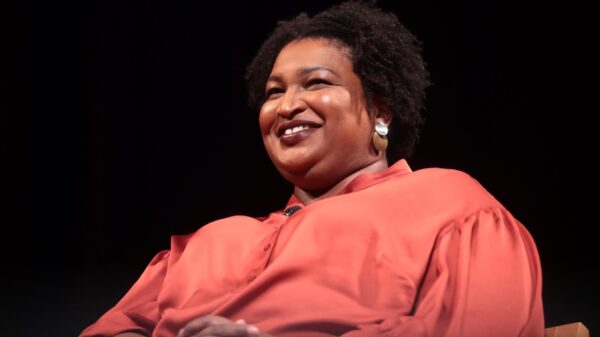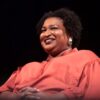Cherry Blossoms in Washington, D.C. Photo courtesy of Lauren Walston.
Springtime at Howard has always been a time to look forward to. Picture it: warm weather, the Yard, killer outfits and beautiful smiles. Thanks to a 2018 gift from The National Cherry Blossom Festival and All Nippon Airways (ANA), pink cherry blossoms are now a part of the vision of springtime at The Mecca.
From the original article reporting this gift from The Dig, Diana Mayhew, president of the National Cherry Blossom Festival, said, “Our partnership with ANA is pivotal to United States-Japan relations, along with ensuring that not only is Washington celebrating the National Cherry Blossom Festival at the Tidal Basin, but throughout the entire city. Howard University is a key part of our community and the festival belongs to everyone within it.”
In the same article, Naohiri Terakawa, vice president and general manager of ANA’s Washington office, said it’s all about “friendship and partnership” between the U.S., Japan, ANA and Howard University.
If the cherry blossom gift from Japan belongs to everyone and represents friendship and partnership between both countries, then why is a statement against Asian Hate too political for the National Cherry Blossom Festival?
Jade Womack, D.C. resident and owner of @clockoutdc on Instagram, is a White and Chinese-Filipino influencer that keeps residents and tourists alike updated on all things D.C. She notified her 88.6k followers (of which I am one) on Feb. 20, 2023, that she would no longer be highlighting events promoted by the National Cherry Blossom Festival.
After two years of activism through the Mayor’s Office, news outlets, other influencers and NCBF themselves, she was told #StopAsianHate is too political for the Cherry Blossom Festival. In the comments of her post, fans and critics rushed to share their opinions, some ranging from support and personal boycotts to “Well I mean… they can’t speak out against all hate and make a statement on everything bad that happens, stop politicizing the cherry blossoms!”
In my opinion, the cherry blossom gift to D.C. was already a brilliant, diplomatic and political move by both the U.S. and Japan. The idea to plant trees in D.C. came from Eliza Ruhamah Scidmore, a traveling writer and often described as a diplomat, after a trip to Japan in 1885.
After an experiment of her idea with the U.S. Department of Agriculture (USDA) was a success, she approached First Lady Helen Herron Taft in 1909 with the idea. The First Lady was on board, and the idea soon reached the Japanese consul of New York who suggested that the Japanese government would make a gift of cherry trees to the U.S. government. 2,000 trees were gifted by Tokyo’s Mayor, Yukio Ozaki, in 1910, but the USDA had to destroy them due to bug infestation.
Through a show of goodwill and friendship, Mayor Ozaki sent 3,020 more trees that arrived in the U.S. on March 26, 1912. Most were planted around the Tidal Basin. The first two trees were planted a day later by First Lady Helen Taft and Viscountess Chinda, wife of the Japanese Ambassador. The Cherry Blossom Festival we know today became an annual event in 1935 to celebrate friendship and cultural exchange between both countries.
How could a simple reaching across the aisle to our friends in Japan with something as small as a boilerplate response against Asian Hate be seen as too political today? Let’s look at the Cherry Blossom Fest today and who is on the board of directors making these decisions.
Board of Directors
Honorary Chair – First Lady Dr. Jill Biden
Chair – David Moran (Clyde’s Restaurant Group)
Chair – Rachel Hartman (DowntownDC Foundation)
Secretary – Susan Norton (Cultural Connections Consultants)
Treasurer – L. Allan Perraud
At Large – Lizette Corro (Corro Nobil Associates)
At Large – Karyn Le Blanc (KGL Communications)
At Large – Emeka Moneme (Transurban North America)
Past Chair – Richard Bradley (The Urban Partnership)
Member – Lisa Abrams (The Hotel Association of Washington, D.C.)
Member – Jeffrey Bank (The Alicart Restaurant Group)
Member – Kimberly A. Bassett (Secretary of the District of Columbia)
Member – Theresa Belpulsi (Destination DC)
Member – Jennifer Chick (Global Head & SVP, Hilton Honors, Customer Engagement & Partnerships)
Member – Barbara Ehrlich
Member – Angela Franco (DC Chamber of Commerce)
Member – Andrew Gelfuso (TCMA (A Drew Company))
Member – Tony Gittens (Filmfest DC)
Member – Chinyere Hubbard (Greater Washington Partnership)
Member – Jennifer Johnson
Member – Chiyo Kobayashi
Member – Mary LoJacono (Towers Watson)
Member – I-Shi Patterson-Stuart (Restaurant Association of Metropolitan Washington)
Member – Sue Porter
Member – Lissa Rosenthal-Yoffe (American Institute for Conservation and the Foundation for Advancement in Conservation)
Member – Ryan Shaffer (Japan-America Society of Washington DC)
National Cherry Blossom Festival Emeritus – Ellie Harvey
National Cherry Blossom Festival Emeritus – Laurel Lukaszewski (Artist/Owner White Point Studio)
Council of Advisors – Mayor Muriel Bowser (Government of the District of Columbia)
Council of Advisors – Elliot L. Ferguson (Destination DC)
Council of Advisors – Yuji Hirako (All Nippon Airways Co., Ltd)
Council of Advisors – Ambassador John R. Marlott
Council of Advisors – Anthony Williams (Federal City Council)
To put this list in simpler terms, the Cherry Blossom Festival is a business. What “too political” really means is “bad for business.” It is no secret that D.C. cherry blossoms garner a lot of tourism, and a lot of businesses depend on the Cherry Blossom Fest for their bottom line. To them, a statement like #StopAsianHate made during the wrong political climate could endanger ticket and merch sales. It is the ultimate corporate sanitization to take as much culture and life as possible out of an event to make it palatable to a majority of audiences. It is also a successful attempt at profiting off a popular movement or entity, like the commercialization of Juneteenth through Great Value Juneteenth ice creams, fried chicken and watermelon luncheons.
They figure a few angry complainers moaning about a new hashtag won’t be enough to dent their bottom line. The Cherry Blossom Festival is no longer about friendship and cultural exchange between the U.S. and Japan.
From Feb. 27 to March 7, a group of Howard students and I went to Japan as TOMODACHI Kakehashi-Inouye Scholars, a once-in-a-lifetime opportunity partly funded by the Japanese government to serve as kakehashi, or bridges, between the U.S. and Japan. Howard University was partnered with Keiwa College in Shibata City, Niigata, Japan.
We learned that after the 7.5 Niigata Earthquake in 1964, Duke Ellington, a D.C. native and renowned jazzman, was named “International Amity Honorary Citizen” by Niigata Prefecture after holding a charity concert at Tokyo Koseinenkin Kaikan Hall and donating all proceeds to Niigata Prefecture in 1966. A mural of him stands proudly in Niigata City. More recently, 57 years later, we got to visit that mural and hear a surprise jazz concert by the Keiwa Gakuen High School Jazz Hornets. Ellington’s gift and the connection to D.C. were not forgotten or bastardized.
Imagine if, instead of commemorating Ellington and building friendships in the U.S., they held a cookout in front of the mural and charged $20 entry, $50 a plate and sold Ellington’s likeness on t-shirts and keychains during the month of February? And when you ask organizers to make a statement against racism (which Ellington did his entire career), they respond with: “too political” and continue to crack crab legs in front of Ellington’s mural?
This analogy is not one-to-one; and quite frankly, the reality is much worse. To know the outpouring of hospitality and genuine care for the friendship we met during the program would not be replicated in the biggest show of friendship in the U.S. with Japan embarrassed and saddened me. However, I know the giants I stand up against in this battle, and I know any outcry from me will fall on deaf ears like Womack’s, who has more resources at her disposal than I do.
So, the only thing I can do this year is organize a protest with my wallet and feet. I do not use the term boycott, because that implies I will once again partake in the activity I’m boycotting in the future. After all, what could I possibly offer in the face of the potential to win a family vacation to Walt Disney World?
Instead, I will unplug from the overwhelming series of events scrambling to stuff every sakura petal they can into their wallet these upcoming weeks and enjoy traditional hanami, and flower viewing, while reflecting on what it means to be a bridge between two countries.
Angel Bryant is a junior International affairs major and Japanese minor at Howard University. Bryant is also President of The Writer’s Guild.
Copy edited by Alana Matthew







